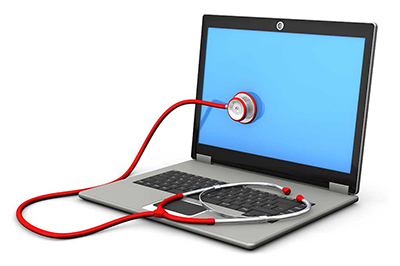In the age of technology, we rely on our computers for nearly every aspect of our lives. From work to entertainment, our devices are essential tools that keep us connected and productive. However, even the most advanced machines are not immune to glitches and malfunctions. Enter the hardware handyman, the unsung hero of the digital world who specializes in fixing common computer problems. Join us as we explore the intricacies of troubleshooting and repairing these pesky glitches, and learn how the hardware handyman keeps our devices running smoothly.

Identifying Common Computer Glitches
When it comes to using a computer, encountering glitches is almost inevitable. Understanding these common computer issues can help you become the hardware handyman of your own device, saving you time and money in the long run. Here are some of the most frequent glitches you might come across:
1. Blue Screen of Death (BSOD): This dreaded screen often indicates a critical system error that can cause your computer to crash. It usually includes an error code that can help you troubleshoot the issue.
2. Slow Performance: If your computer is running sluggishly, it could be due to a variety of reasons such as insufficient RAM, too many background processes, or even malware. Performing regular maintenance tasks like disk cleanup and defragmentation can help improve performance.
3. Connectivity Issues: Whether it’s a faulty Ethernet cable, a misconfigured network setting, or a problematic Wi-Fi connection, connectivity problems can be frustrating. Check your hardware connections and network settings to resolve these issues.
Understanding the Role of Hardware in Computer Issues
When it comes to troubleshooting computer issues, understanding the role of hardware is essential. Hardware components are the physical parts of a computer system that can malfunction and cause a variety of problems. By familiarizing yourself with common hardware glitches and how to fix them, you can become your own hardware handyman and keep your computer running smoothly.
Common hardware issues include:
- Random crashes or freezes
- Blue screen of death errors
- Slow performance
- Overheating
One of the most common hardware issues is overheating, which can lead to system crashes and data loss. To prevent overheating, ensure that your computer’s fans are clean and functioning properly. Additionally, consider investing in a cooling pad to help regulate the temperature of your device.
Effective Solutions for Hardware-Related Problems
Have you ever experienced frustrating hardware-related problems with your computer? Don’t worry, The Hardware Handyman is here to save the day with effective solutions for common computer glitches. Whether you’re dealing with a slow system, malfunctioning peripherals, or unexpected shutdowns, we’ve got you covered.
One common hardware issue many users encounter is a sluggish computer. To speed up your system, try these solutions:
- Clear out temporary files and perform a disk cleanup.
- Upgrade your RAM for better performance.
- Check for malware or viruses that could be slowing down your computer.
If you’re facing problems with malfunctioning peripherals such as printers, scanners, or external hard drives, follow these steps to resolve the issue:
- Make sure the peripheral is properly connected to your computer.
- Update the drivers for the peripheral device.
- Check for any physical damage to the peripheral and replace if necessary.
Tips and Tricks for Preventing Future Glitches
One common cause of computer glitches is overheating. Make sure to regularly clean out the dust from your computer’s fans and vents to prevent overheating. You can also invest in a cooling pad to help regulate your computer’s temperature.
Another tip is to keep your software up to date. Software updates often include bug fixes and patches that can help prevent glitches from occurring. Set your computer to automatically update so you don’t have to worry about falling behind on important updates.
Additionally, organizing your files and folders can help prevent glitches by reducing clutter and making it easier for your computer to access important data. Create a system for organizing your files and stick to it to keep your computer running smoothly.
Lastly, consider investing in a surge protector to protect your computer from power surges and electrical damage. Power surges can cause glitches and even damage your computer’s hardware, so adding an extra layer of protection can help prevent future issues. In conclusion, having the skills of a hardware handyman can save you time, money, and frustration when dealing with common computer glitches. By understanding the basics of troubleshooting and repair, you can keep your technology running smoothly and efficiently. So next time your computer starts acting up, don’t panic – grab your tools and get to work! With a little knowledge and a lot of determination, you can become your own hardware hero. Happy fixing!

